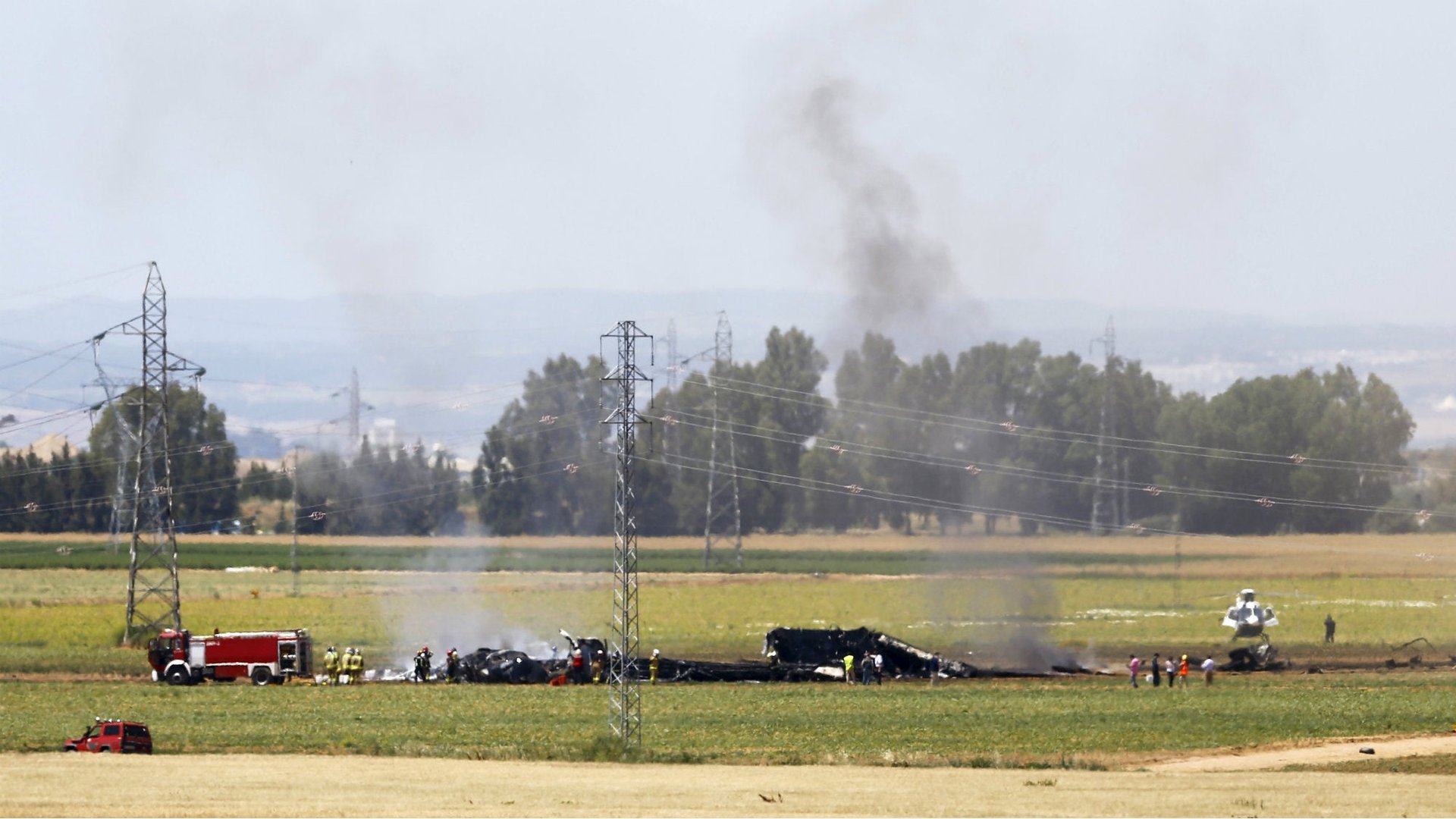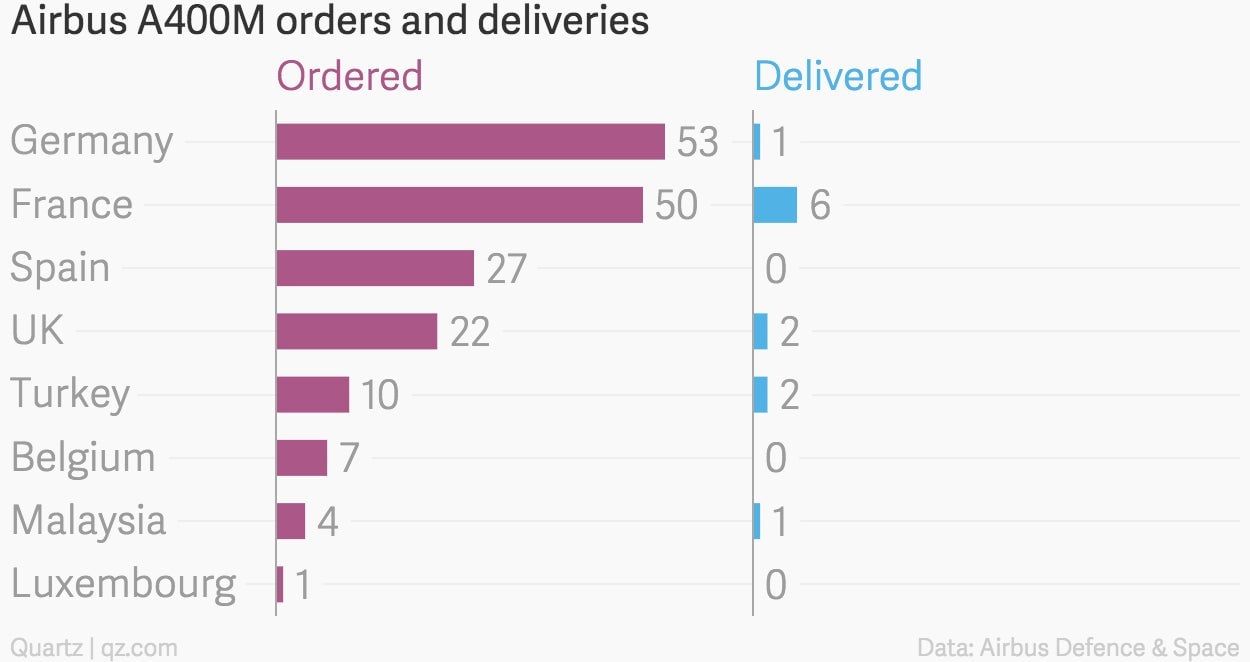Airbus’s military misadventures have brought it delays, cost overruns—and now a crash
Airbus’ shares are sinking today—down as much as 4% at one point—after one of its military cargo planes crashed in Spain over the weekend. Four of the six crew onboard were killed when the A400M troop transporter went down in a field outside of Seville about 15 minutes after takeoff.


Airbus’ shares are sinking today—down as much as 4% at one point—after one of its military cargo planes crashed in Spain over the weekend. Four of the six crew onboard were killed when the A400M troop transporter went down in a field outside of Seville about 15 minutes after takeoff.
It was the plane’s first test flight—the aircraft was due to be delivered to the Turkish military next month. Air forces that use the plane grounded their fleets pending an investigation into the cause of the crash.
The huge turboprop transporter, which can lift 37 metric tonnes (40.8 short tons), cost some €20 billion ($22.3 billion) to develop and represents Europe’s largest single defense contract. Beset by delays and cost overruns—described in graphic detail in a Reuters special report (pdf)—the high-profile A400M project has long been a drag on Airbus’ otherwise high-flying results.
Airbus’ shares hit an all-time high last month, thanks to passenger airlines boosting plane orders with the profits they are reaping from low fuel prices. But the group’s results would look even better if they weren’t weighed down by the company’s Spain-based military division, which last year accounted for more than 20% of the group’s revenue but less than 10% of its pre-tax profit.

Airbus has taken cumulative charges and write-downs worth nearly €5 billion on the A400M project, including a €551 million impairment announced in February.
The plane was almost scrapped entirely before a 2010 bailout by European governments (pdf) kept it alive, in return for a share of future revenues. (“We hate you, but we don’t want you dead,” a state official told Airbus at the time, according to Reuters.)
Even then, countries have continuously cut back and cancelled orders of the A400M throughout its tortured development. Airbus reshuffled the management of its defense division earlier this year, amid reports of increased unrest among its military customers over delivery delays and quality-control issues.
Although only 12 of the A400M aircraft have been delivered so far, there are 174 on order. Following this weekend’s disaster, some of these bookings could be at risk. The prospects for export outside of cash-strapped European markets are also looking dim—South Africa cancelled an eight-aircraft order years ago, and Malaysia has ordered just four of the planes.

And it’s not just the Airbus group’s financial results that could take a hit if the program continues to founder. The company’s defense division employs around 40,000 people, mostly in Spain, which can ill afford potential job losses when unemployment is running at 24% of the nation’s workforce.
Airbus CEO Tom Enders says the company remains committed to the A400M, but doubts will inevitably resurface about the ill-fated project, especially considering the sunk costs so far, as Reuters has memorably described them:
If a bank robber stole in 100-euro notes the amount that Europe’s troop plane had gone over-budget, an A400M would be unable to lift the weight. To perform the getaway, the robber would need a larger Boeing C-17.